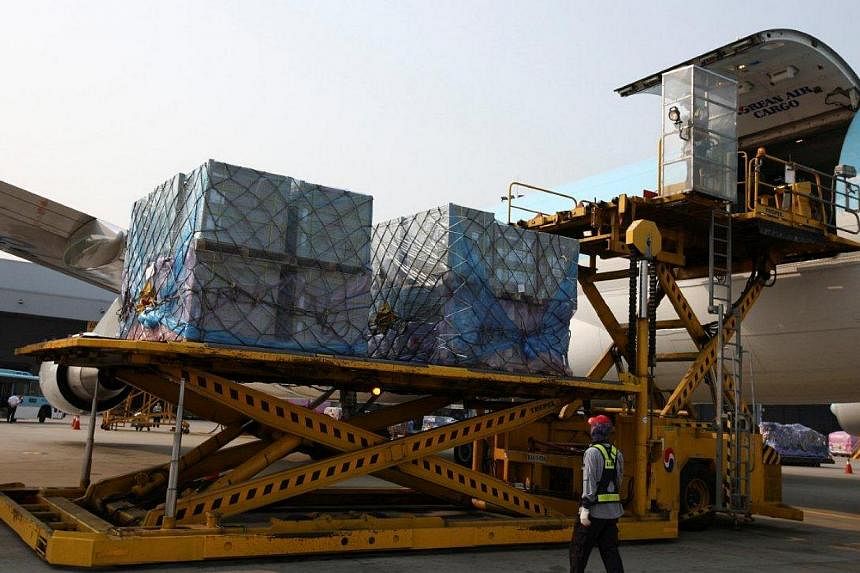Geneva - International freight volumes will likely return to strength over the next five years, with the Middle East and Africa leading the growth, the International Air Transport Association (IATA) said on Wednesday.
Air cargo volumes will likely increase at an average pace of 4.1 per cent a year over the next five years, it said in a statement.
Since 2011, growth in freight tonnes has averaged just 0.63 per cent per year.
"Air cargo remains as vital to the global economic system as ever. This year, more than US$6.8 trillion worth of goods, equivalent to 35 per cent of total world trade by value, will be transported around the world by air," said IATA director general and chief executive Tony Tyler.
"So it is welcome to see a forecast for a return to growth for the air cargo sector after several years in the doldrums."
The United States, China and the United Arab Emirates (UAE) will each be adding more than 1 million additional tonnes of freight by 2018 compared to today, IATA said.
By then, the UAE will have replaced Germany as the third largest market.
The fastest growing international routes will be between the Middle East and Asia, where air cargo volumes are expected to grow 6.2 per cent each year.
Nevertheless, the overall risks to the economic outlook and therefore to air freight, remain towards the downside and trade protectionism is a constant danger, Mr Tyler said.
According to the World Trade Organization, there were 112 new trade-restrictive measures enacted by the world's 20 largest economies between Nov last year and May this year, he noted.
Geopolitical concerns, volatility of oil prices, and competition from rail and sea could also affect this forecast.


